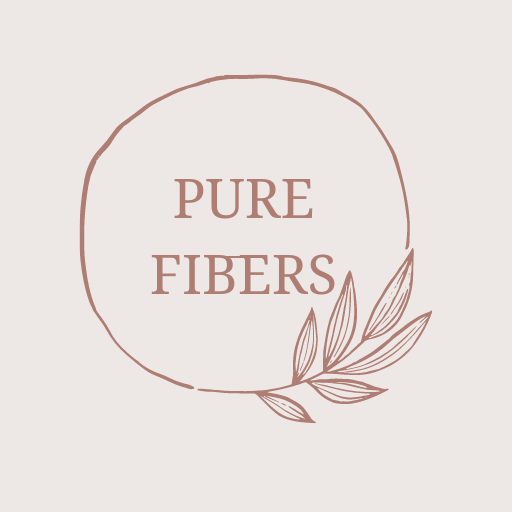Why Organic Cotton is Better for You and the Environment
Organic cotton is gaining popularity as a superior alternative to conventional cotton, offering numerous benefits for both personal health and environmental sustainability. By choosing organic cotton, you contribute to a healthier planet and enjoy the comfort and safety of natural, toxin-free fibers. Let’s explore why organic cotton is a better choice for you and the environment.
Introduction to Organic Cotton
Organic cotton is grown without the use of synthetic pesticides, fertilizers, or genetically modified organisms (GMOs). It follows strict agricultural standards that promote soil health, biodiversity, and the well-being of farmers and consumers. This sustainable approach results in high-quality cotton that is better for the environment and safer for your skin.
Health Benefits of Organic Cotton
-
No Harmful Chemicals: Organic cotton is free from harmful chemicals and synthetic pesticides, reducing the risk of skin irritation, allergies, and respiratory issues. This makes it ideal for individuals with sensitive skin or chemical sensitivities.
-
Breathable and Hypoallergenic: Organic cotton is naturally breathable and hypoallergenic, promoting better airflow and reducing the likelihood of skin irritations. It is particularly beneficial for babies and those with delicate skin.
-
Soft and Comfortable: Organic cotton fibers are softer and more comfortable than conventional cotton, providing a luxurious feel against the skin. The absence of harsh chemicals ensures that the fabric remains gentle and soothing.
Environmental Benefits of Organic Cotton
-
Reduced Water Usage: Organic cotton farming typically uses less water than conventional cotton farming. By employing sustainable irrigation methods and rain-fed agriculture, organic cotton reduces the strain on water resources.
-
Soil Health: Organic farming practices enhance soil fertility and structure, promoting healthy ecosystems. Techniques such as crop rotation, composting, and natural pest control contribute to nutrient-rich soil and sustainable agriculture.
-
Biodiversity Conservation: Organic cotton farming supports biodiversity by avoiding synthetic pesticides and fertilizers that harm beneficial insects, plants, and wildlife. This approach fosters a balanced and resilient ecosystem.
-
Lower Carbon Footprint: Organic cotton farming generates fewer greenhouse gas emissions compared to conventional cotton farming. Sustainable practices like reduced tillage and organic fertilization contribute to lower carbon footprints.
Economic and Social Benefits
-
Fair Wages and Safe Working Conditions: Organic cotton farming often adheres to fair trade principles, ensuring fair wages and safe working conditions for farmers and workers. This promotes social equity and improves the livelihoods of those involved in cotton production.
-
Community Empowerment: Organic cotton farming supports local communities by promoting sustainable agriculture and providing opportunities for small-scale farmers. This fosters economic stability and empowers communities to thrive.
Tips for Choosing Organic Cotton
-
Check Certifications: Look for certifications such as GOTS (Global Organic Textile Standard) and Fair Trade when purchasing organic cotton products. These certifications ensure that the cotton meets strict environmental and ethical standards.
-
Prioritize Quality: Invest in high-quality organic cotton items that are durable and long-lasting. Quality products reduce the need for frequent replacements, promoting sustainability and cost savings.
-
Support Sustainable Brands: Choose brands that prioritize sustainability and ethical practices. Supporting companies that use organic cotton encourages more businesses to adopt environmentally friendly practices.
-
Buy Versatile Pieces: Opt for versatile organic cotton clothing and home textiles that can be used in multiple ways. Versatile pieces enhance the functionality of your wardrobe and reduce overall consumption.
Caring for Organic Cotton
-
Use Gentle Detergents: Wash organic cotton items with mild, biodegradable detergents to maintain their softness and integrity. Avoid harsh chemicals that can damage the fabric and the environment.
-
Wash in Cold Water: Washing organic cotton in cold water reduces energy consumption and helps preserve the fabric’s quality. Cold water washing is gentler on the fibers and reduces shrinkage.
-
Air Dry: Whenever possible, air dry your organic cotton items to reduce energy use and prevent damage from high heat. Air drying also helps maintain the fabric’s natural softness and shape.
Organic cotton offers numerous benefits for your health, the environment, and the well-being of farming communities. By choosing organic cotton products, you contribute to a more sustainable and ethical fashion industry while enjoying the comfort and safety of natural, toxin-free fibers. Embrace the advantages of organic cotton and make a positive impact on your life and the planet.
